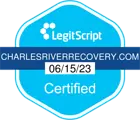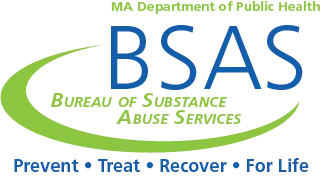Community and Support Systems in Addiction Recovery
Addiction recovery is hard. Not only does the person with a substance use disorder need to resist the urge for “just one more hit,” but when they’re around the same people — many of whom also have a substance use disorder — it makes it increasingly difficult to remain clean and sober. Is there a solution? Fortunately, yes, there is.
Does the Support System Matter in Addiction Recovery?
Statistically, the quality of the surrounding community and support system can determine the success of recovery for the person with a substance use disorder, no matter the substance. Treatment can be either inpatient or outpatient, depending on the type and severity of the addiction. Statistically, between 85% and 95% of those who complete a treatment program remain sober after nine months.
The 12-step programs are more successful than some other types of treatments, and the more meetings the recovering addict attends, the more likely it is that they’ll remain sober. It’s also important to remember that a relapse doesn’t translate into failure; it’s simply an unanticipated possible step in curing the lifelong disease of addiction. Addiction is a disease that can last a lifetime, but it can also be treated and cured. The critical decision is to decide to get treatment and then decide which program is best for you.
Some types of addictions are more difficult to treat and cure, but failure should be eliminated as an option. The support groups provided by some treatment groups can be invaluable in maintaining sobriety even after the treatment ends. Many online support groups exist for addiction recovery, and they can be helpful during times when an in-person support group isn’t feasible. It’s important to note that making new friends enables the best recovery. One of the hurdles in successful recovery can be changing your lifestyle, friends, and habits. When you complete recovery but resume your pre-recovery lifestyle, activities, and friends, you may be setting yourself up for a relapse. Your recovery support community can help you overcome these obstacles.
Who Does the Community Consist Of?
The recovery community consists of other individuals who are also experiencing addiction, regardless of the type. The physiology is the same whether it’s for alcohol, drugs, gambling, sex, or any other addiction. The recovery community is comprised of individuals who share this inconvenient physiology, so they’re more likely to understand what others are experiencing.
What’s the Value of a Community Support System?
The value of the recovery community lies in its ability to identify and empathize with others who are experiencing the same issues. The recovery community provides a sense of belonging so you don’t feel like you’re alone in your addiction and its difficulties. A feeling of isolation can contribute to a relapse, so it’s essential to maintain a recovery support system.
Knowing there are others like you can have a dramatic impact on your mental health and your overall outlook on life. A positive mental outlook is crucial to the success of your addiction recovery. Many times, it’s difficult for family and friends to understand why you can’t just quit cold turkey. They don’t understand the hold an addiction has on you, so you feel isolated, misunderstood, and alone. Your community support group can provide the sense of belonging you need and the comfort that comes with associating with like-minded individuals. Community associations can provide:
- Connections
- Inspiration
- Knowledge
- Resources
- Support
If you’ve lost your livelihood due to your addiction, you may find resources to help you gain employment. Many employers no longer look on recovery as a negative. Rather, they recognize the difficulty involved in honestly assessing your life, deciding to enter recovery, and then implementing that decision. Taking the steps to honestly evaluate your life and then change it for the better are considered to be positive attributes in an employee.
Associating with those who have similar experiences to yours can inspire you for times when you may be discouraged or disheartened. They may also be a source of support when you need it.
We all need various resources when undertaking a difficult task, and recovery is indeed difficult at times, just as life is sometimes difficult. Ensuring you have a good support system and support community in your journey through recovery is one of the best steps you can take to ensure a successful recovery.
Who Has the Best Chances for Successful Recovery?
Those who enter a recovery or support program that’s appropriate for their addictions are more likely to complete the program and remain clean and sober. It’s possible to successfully complete your addiction recovery without the benefit of a program, but the failure rate is higher, and it will probably take longer. Also, if you need medication to help you complete your recovery, you won’t have that available if you are trying to recover on your own.
Does Everyone Relapse?
Statistically, between 40% and 60% of those recovering from a substance use disorder may relapse, and the number may be higher depending on the substance involved. However, a relapse isn’t a failure. It can actually increase the likelihood of ultimate success because it helps you learn better coping and self-care methodologies.
Usually, the road to relapse occurs well before the resumption of drinking or using drugs. There are three steps to relapse, and poor self-care is usually the first instigator. The three steps are emotional, mental, and physical, and the individual may be unaware that they’re headed to a relapse. However, if they’re in an emotional support group, other members may recognize the signs and help them avert a relapse.
When a recovering addict has proper support, including using tools and techniques learned in their recovery program, it’s easier to overcome a relapse and avoid having one in the future. A relapse is particularly hazardous when drugs like cocaine and opioids are involved. If you’ve been addicted to hardcore drugs such as cocaine or opioids, recovering through a treatment program is essential, both for effectiveness as well as for safety.
Hard drugs have a deleterious effect on the entire body, which increases the likelihood of a major event occurring if you stop using drugs abruptly. Alcohol is the same. A hardcore alcoholic can die if they abruptly quit drinking, so such an individual should seek professional help prior to becoming sober. Many in-patient treatment programs can administer medications and treatments that will enable an alcoholic to safely and successfully detox from alcohol.
Is a Relapse Dangerous?
Depending on the drug involved, the degree of alcoholism, and the individual physiology, a relapse can be very dangerous. If the individual is in a treatment program or has completed one, they may need to be readmitted to the program. Those who have had a relapse may need to determine the cause of it and outline a procedure that will help them avert a recurrence. This is true for alcoholics as well.
I’m Ashamed to be an Addict!
Although you’re not alone in this feeling, there’s no need to feel ashamed of being addicted. Any type of addiction is a disease, just the same as diabetes, cancer, or heart disease are diseases, and you wouldn’t be ashamed if you had them. Substance use can be treated, and you can live a full and satisfying life without being hindered by the disease, but you’re the only one who can make the decision to seek help. Prescription medication addiction is widespread so that you may have become addicted through no fault of your own, and it’s not shameful to ask for assistance in quitting.
Don’t let friends, coworkers, or relatives shame you into not seeking treatment. You may be surprised at the people you meet in your treatment recovery program. Addiction is not limited to the poor and oppressed; it affects athletes, celebrities, top-level executives, and individuals from all walks of life, so don’t be ashamed and forego seeking the treatment you need.
Research has indicated that there may be a genetic link to addiction, so even with the best of intentions, your recovery may be beyond the scope of your abilities. A professional treatment recovery program may be able to help you work through the genetic link and thus have a more successful recovery.
What Are the Benefits of Sobriety?
When you become clean and sober, you’ll experience:
- Better sleep
- More energy
- Improved skin quality
- Improved thought quality
- Possible loss of belly fat
- Ways to have fun without drugs or alcohol
Many of these effects will occur within the first two weeks! You may also experience improved interpersonal relationships and fewer mood swings.
You may lose some of your drinking buddies or some of those you used to get high with, but you’ll make new friends in your recovery community. You may find that you prefer a clean and sober life to one that is focused on pharmaceuticals and alcohol. You’ll also have no alcoholic blackouts or periods of time that you can’t remember because you were high.
What About Mental Health?
In addition to addictions, many recovery centers help with mental health issues. Often, poor mental health can be the catalyst for addiction, so the two aren’t mutually exclusive. If you have mental health issues or you think you need mental health help, don’t hesitate to reach out to us at Charles River Recovery for assistance.
If you have a family member or friend who has mental health or addiction issues, you can reach out to them as well, which may prevent addictions from developing.






